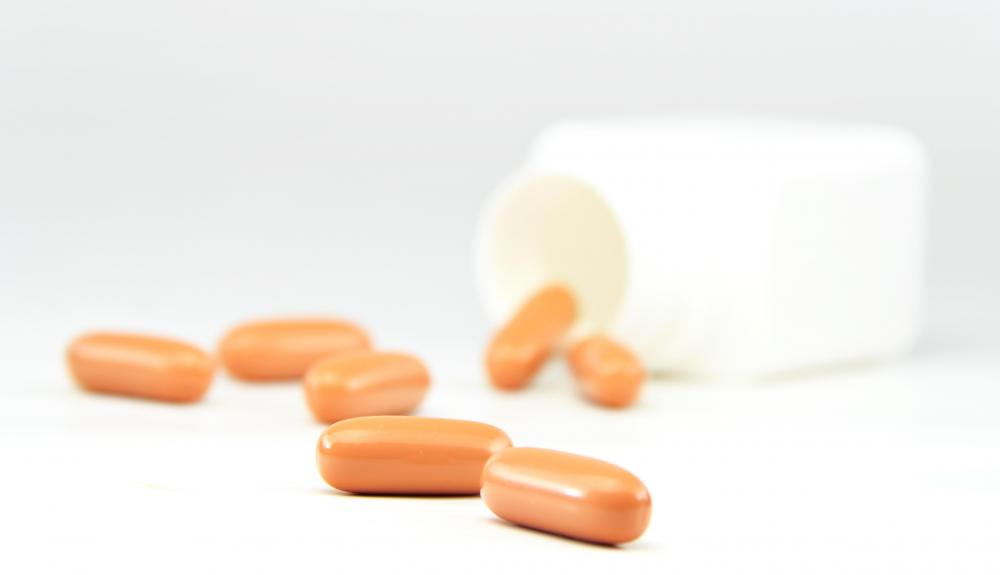At WiseGEEK, we're committed to delivering accurate, trustworthy information. Our expert-authored content is rigorously fact-checked and sourced from credible authorities. Discover how we uphold the highest standards in providing you with reliable knowledge.
How do I Choose the Best Antioxidant Tablets?
Nutritional supplements containing antioxidants are often available from supermarkets and health food stores. The sheer variety of antioxidant tablets can make selection of the best one a daunting task. It is thus important for consumers to read product labels, avoid harmful mega-doses and be cautious of misleading claims. In many cases, antioxidant tablets should contain additional vitamins and minerals, meet pharmaceutical-grade standards and have the proper research and testing background to ensure safety.
Antioxidants are molecules that help protect cells and tissues from free radical damage. That damage is frequently linked to such health problems as cancer, heart disease, chronic fatigue and rheumatoid arthritis. It is believed that antioxidants work to stabilize free radicals and thereby prevent some of their destruction. Examples of antioxidants include beta carotene, lycopene, and vitamins A, C and E.

Many health care professionals recommend a diet rich in fresh fruits and vegetables for antioxidant consumption. Antioxidant tablets may be viable alternatives for diets that lack adequate nutrients. Supplements that contain antioxidants frequently come in powder, liquid and tablet form. Consumers routinely find such a large variety of antioxidant supplements that selection is difficult. One place to start is with supplement labels.

When reading label information, consumers should avoid antioxidant tablets with harmful mega-doses of vitamins or minerals. Some countries provide suggested dosages of daily nutrient values, and these should be followed accordingly. Recommended Daily Intakes (RDIs), for example, are printed on food and vitamin labels in the United States, Canada and Australia.

Supplements with misleading claims such as “cures all” or “stops disease” likely cannot be trusted. In many cases, antioxidant tablets are intended to complement a person’s health regimen and should not be taken in place of a doctor’s recommendations or substitute for a healthy diet. Antioxidant supplements should also not serve as substitutes for prescription medications.

Information about the ingredients in antioxidant tablets should be carefully reviewed. If the properties of a particular ingredient are unknown, consumers may want to conduct additional research or consider a different antioxidant supplement altogether. Sticking with products that contain common ingredients may offer greater health benefits and peace of mind.

Optimal antioxidant tablets typically should contain additional vitamins and minerals. This is because the body needs a variety of micronutrients for healthy functioning of cells and tissues. Antioxidants often work best when they protect already strong and healthy cells from damage.
Antioxidant supplements also should meet pharmaceutical-grade standards. All of the ingredients should be tested for purity and potency to ensure they respond in the body as expected. Each tablet should have the exact ingredients and quantities as specified on the label. The supplement also needs to be bioavailable, meaning the body can readily absorb it; typically, natural ingredients are more easily absorbed than synthetic nutrients.
Proper research and testing are essential to the best antioxidant tablets as well. Supplements may contain herbals or other natural ingredients with the potential to cause adverse reactions. An easy guideline is to look for ingredients in antioxidant tablets that are also found in whole foods. If this is not the case, another selection may be required.
AS FEATURED ON:
AS FEATURED ON:















Discuss this Article
Post your comments